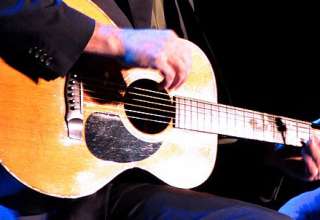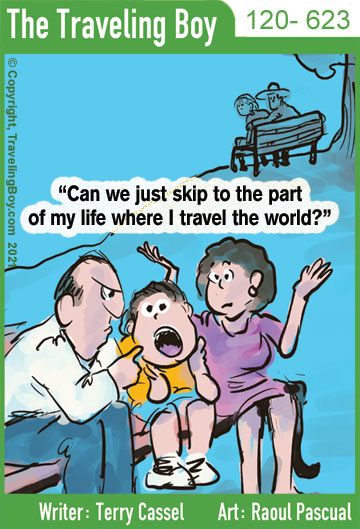You Might Be An American Traveling Abroad If…
Inspired by Jeff Foxworthy with assistance from the Alot Travel Team
If you wear a Baseball Cap while traveling abroad you might be an American tourist.
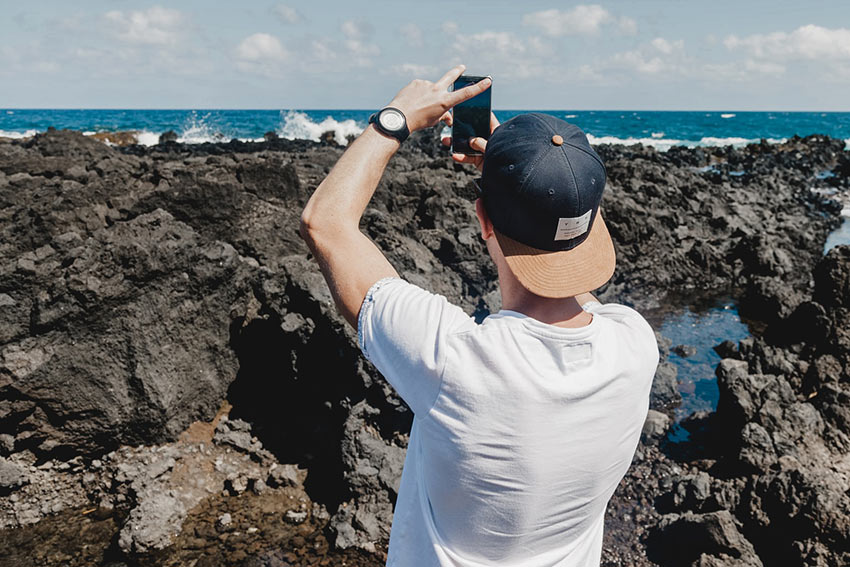
Baseball is the American pastime, right? At least, it was at one point, and it’s still thought of that way, even though we watch more pro football than baseball at this point.
Still, we love the caps, and we carry them around with us everywhere — including overseas, where they immediately mark us as Americans.
If you wear white socks with sandals while traveling abroad you might be an American tourist.
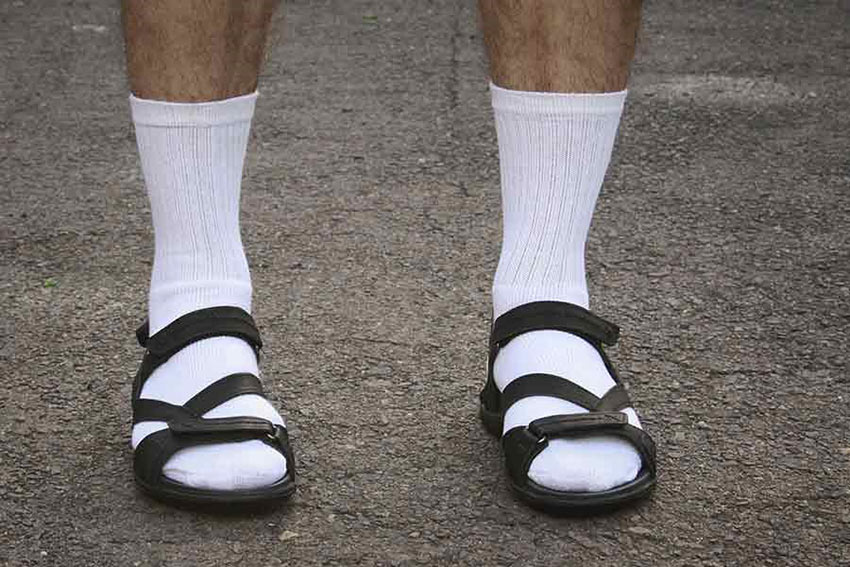
This is another huge giveaway. Here in the US, we may pick on people for wearing socks with sandals, but odds are the socks themselves are a giant white, uh… red flag whether you’re wearing them with sandals or not.
People across Europe and in the UK tend to wear darker socks, and if you’re wearing those white numbers — especially if you’ve got them pulled way up onto your calves — you’re an American.
If you have perfectly straight white teeth while traveling abroad you might be an American tourist.

Braces are commonplace across the U.S., as is teeth-whitening. For a country whose health industry is in shambles compared to the rest of the world, we sure do take care of our teeth.
For us, a braces-straightened, bright smile is such a common sight that we don’t even always notice it. For folks from other countries, it comes across a little… Stepford. And it definitely stands out.
If you inappropriately applaud at a symphony while traveling abroad you might be an American tourist.
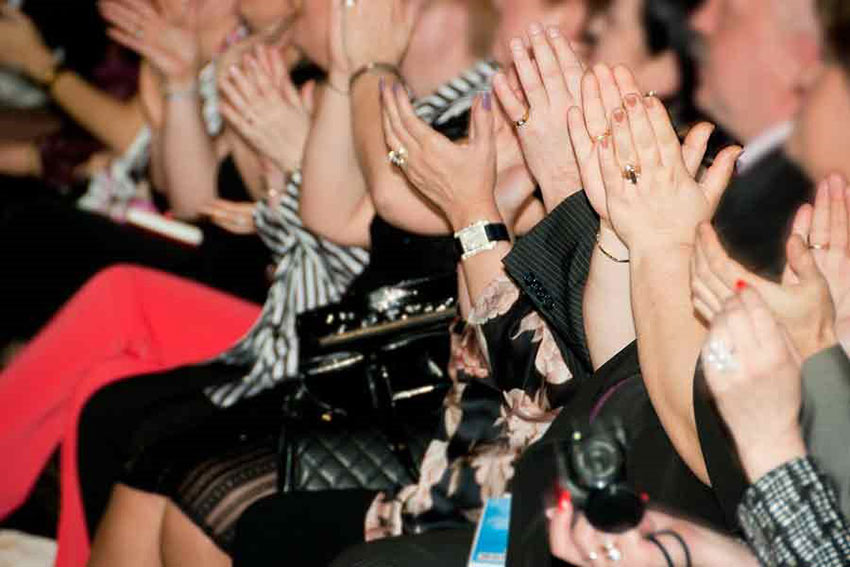
Clapping at the end of a symphony is important and appreciated. But Americans have a reputation for clapping everywhere — like at the movie theater, for performers who obviously can’t hear you, or for planes making a smooth landing.
That’s not necessary anywhere, not even in the States. Stop it. Stop. Stop it.
If you say “Bro” or “‘Sup” while traveling abroad you might be an American tourist.

This is a dead giveaway that you are from the USA. Australians say “mate.” Americans say “bro.” If you want to keep a low profile for whatever reason, update your slang.
But this is one thing that Americans don’t have to be super embarrassed about. “Bro” is not particularly any dumber than “mate” or “bruv” or “gov’na” or whatever term of affection other countries use.
If you wear Fanny Packs while traveling abroad you might be an American tourist.
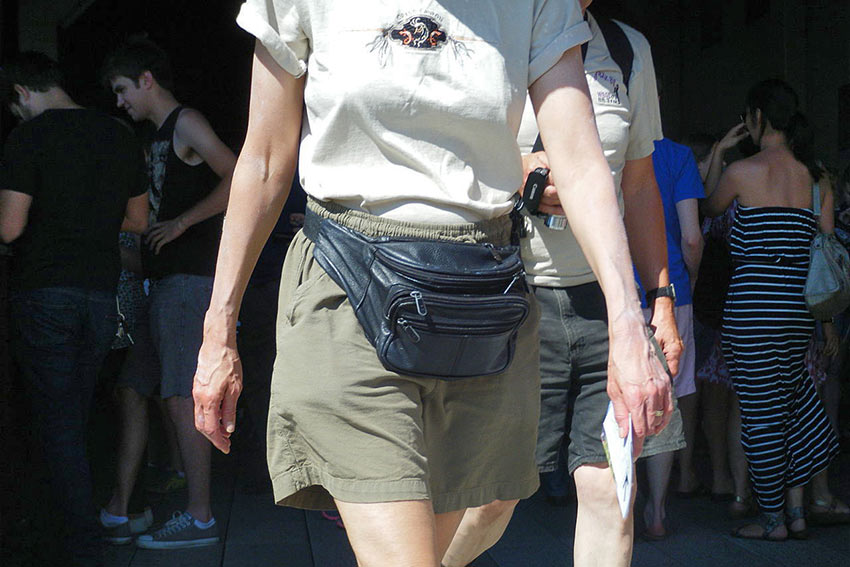
Americans don’t actually wear fanny packs in the states. For some reason, though, they become a crucial part of the ensemble when we go overseas. Maybe it’s the articles we read telling us to watch our wallet.
Maybe we don’t know what to do with our stuff when we don’t have our SUV to cart it all around in. Whatever the reason, here we are. (You might also want to check your white socks, gym shoes, shorts, and baseball caps.)
If you don’t care about Soccer (AKA Football) while traveling abroad you might be an American tourist.

If the game is on and everyone cares except for you, nobody has to guess where you’re from. Our vast indifference to what is apparently a global pastime makes us stand out in a crowd, as does our insistence on using the word “football” to describe a game where only one person per team gets to put his foot on the ball.
We’re not saying it’s right or wrong not to be glued to the TV during a soccer match, just that you’ll stand out if you aren’t.
If you walk while eating you might be an American tourist.
Army regulations prohibit soldiers from walking while engaged in activities that would interfere with the hand salute…or detract from a professional image. This includes walking while eating.
We don’t know that this was specifically about helping people blend in overseas, but we wouldn’t be surprised to learn as much. Walking while eating — or really, doing much of anything while eating beyond focusing on the meal — is distinctly American.
If you do not understand the Metric System while traveling abroad you might be an American tourist.
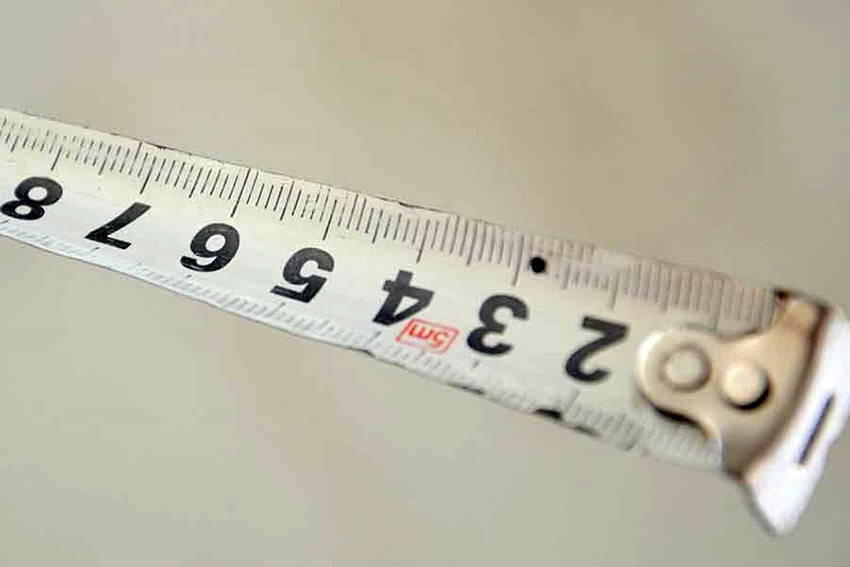
There are only three countries on the planet that don’t use the Metric system, so unless you’re in Myanmar or Liberia, you probably want to keep your degrees in Celsius and your feet to yourself.
England doesn’t even use the English system anymore even though it’s called the “English system.” Learn what a meter is. It’s not that hard.
If you insist upon going to McDonald’s while traveling abroad you might be an American tourist.

From a practicality standpoint, it doesn’t make sense to go to the expense of traveling abroad, paying for plane tickets, lodging, and transportation only to eat the same subpar hamburger you can get two miles from your house.
But people do it — in fact, they seem to be the largest audience for McDonald’s overseas, so much so that “Are they eating McDonald’s?” is one question locals ask themselves to figure out whether a foreigner is American or not.
If you are prudish while traveling abroad you might be an American tourist.

We may be able to drink our compatriots under the table, but that’s where the risque behavior stops. We are, famously, a country that’ll give a movie a harsher rating for showing a man gently making love to his wife than for showing the same man brutally murdering his wife with a baseball bat in slow motion.
If someone’s in an art museum complaining that the woman in the Raphael painting isn’t covered, that person is likely to be American.
If you’re a grown Man Wearing Shorts while traveling abroad you might be an American tourist.
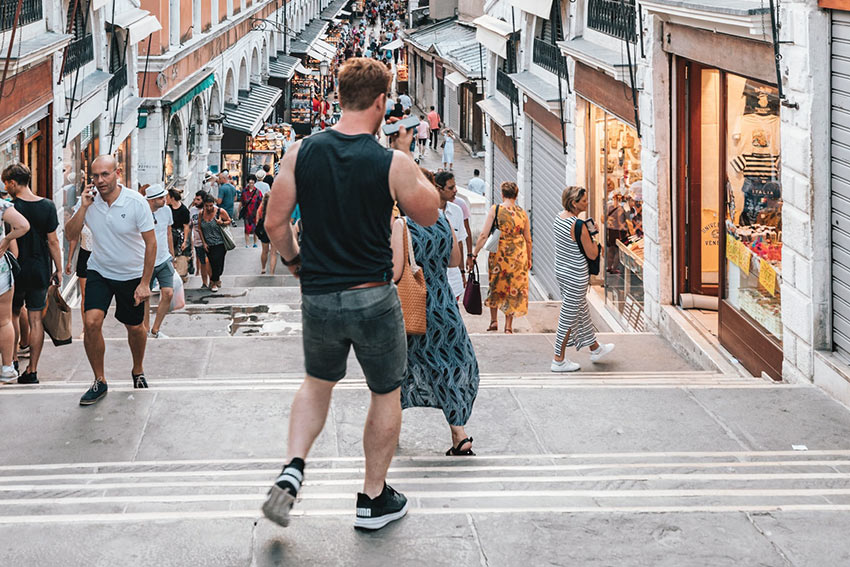
Even when it isn’t very hot outside, Americans LOVE to wear shorts. If you travel to India, for example, shorts are for children.
You won’t get scolded, but they will think that a grown man wearing shorts is a little odd. Think about a grown man in NYC sporting a child’s Spider-Man backpack. It’s just not common.
If you insist upon tipping while traveling abroad you might be an American tourist.

Tipping is important in America because most waiters make less than $3 an hour and rely on tips to pay their rent. However, most other countries actually make restaurants pay their employees.
Tipping is baffling across most of Europe, for instance. That being said, Americans are sometimes too cheap to tip at all — even though we feel an obligation to.
If you don’t know a foreign language while traveling abroad you might be an American tourist.
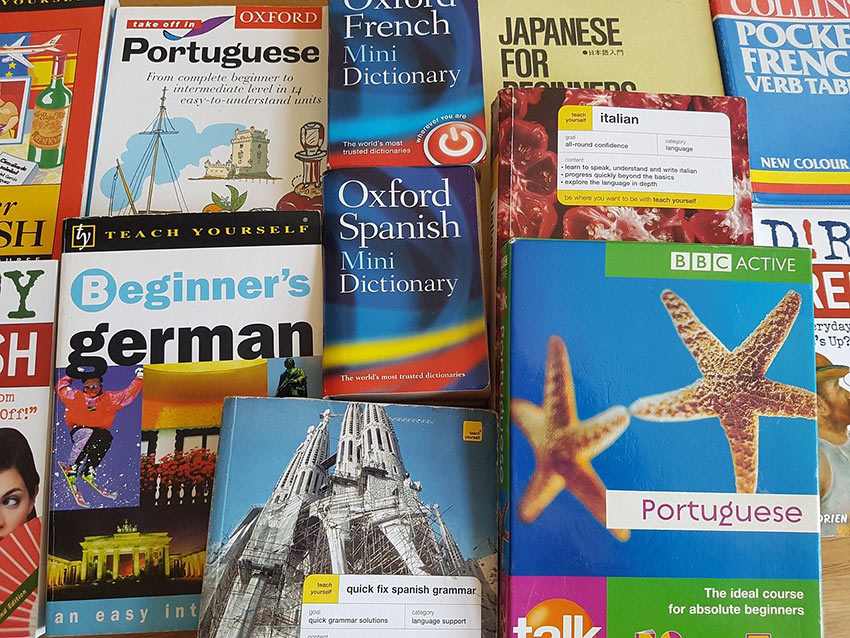
We live in a country where you can drive for over 2,500 miles without leaving the country. We don’t grow up learning languages the way people do when the countries are crammed together like states in New England. We have Texas. There are wholecountries smaller than Texas. Quite a few of them, in fact. Is our monolingual tendency healthy or useful? Probably not. But it’s understandable, and it’s definitely unique to the U.S.
If you speak loudly while traveling abroad you might be an American tourist.

Whether it’s a question of day-to-day conversational volume, or shouting across a room to get someone’s attention, Americans haven’t quite nailed the “inside voice” thing just yet.
If the accent you speak with doesn’t give you away, your volume will.
When you go ballistic upon meeting other Americans abroad you might be an American tourist.

When Americans meet other Americans abroad, it may seem to an outsider that they have met their long-lost relatives. But no. These are complete strangers.
They’ll get loud. They’ll talk about what states they are from. And they’ll let everyone else around them know they are from the States.
If Overweight while traveling abroad you might be an American tourist.
We have one of the highest rates of obesity in the world. So the odds are higher than average that someone who is overweight is from the USA. Sorry, America!
And just a word of warning — not every culture is into polite fiction as much as the United States is. You very well may hear comments about your weight.
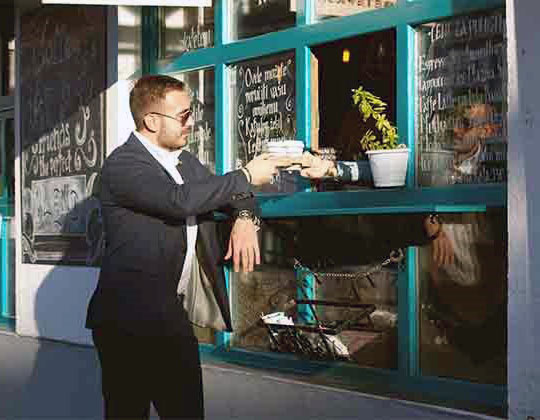 If you order coffee “To Go” while abroad you might be an American tourist.
If you order coffee “To Go” while abroad you might be an American tourist.
Americans are always on the go and in a rush. In many places, especially Europe, they take their coffee culture seriously. And it’s something that you should sit, sip, and take your time with.
If you’re looking to grab your drink and dash, you’re more than likely giving yourself away as an American visitor!
If you wear a North Face Jacket while abroad you might be an American tourist.
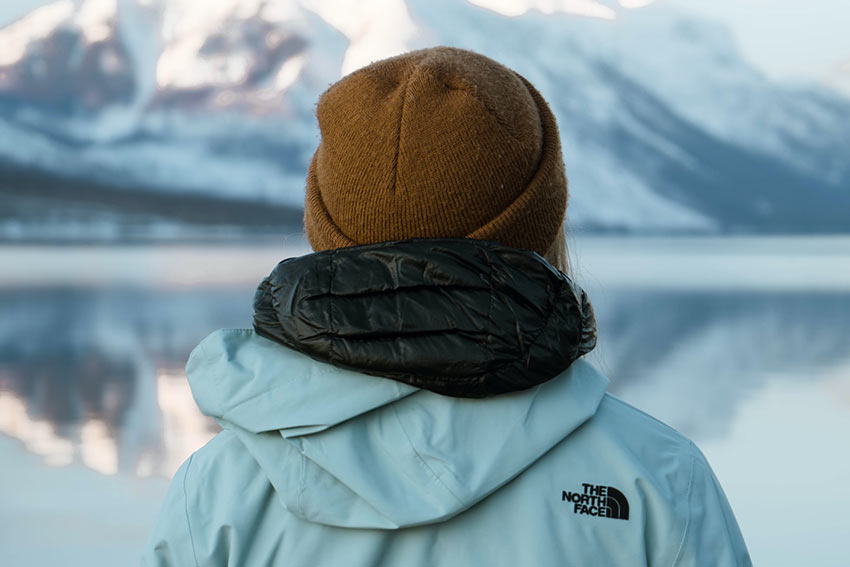
Maybe it’s not surprising that Americans would wear American brands abroad. But what makes The North Face particularly American is how much of the outwear market it owns.
South Korea is getting in on the trend, as the brand has shot up in popularity in recent years.
If you wear graphic tees when traveling abroad you might be an American tourist.

If there’s one dead giveaway from non-Americans that you are from the USA, is that your shirt will say things like “Choose Love” or “Seattle” or “USC.”
Graphic tees, or t-shirts with text on them at all, are less common throughout, say, Europe. I say it’s time to ditch these both abroad and at home — they’re only one step above a bumper sticker.
If you talk about how great the USA is while abroad you might be an American tourist
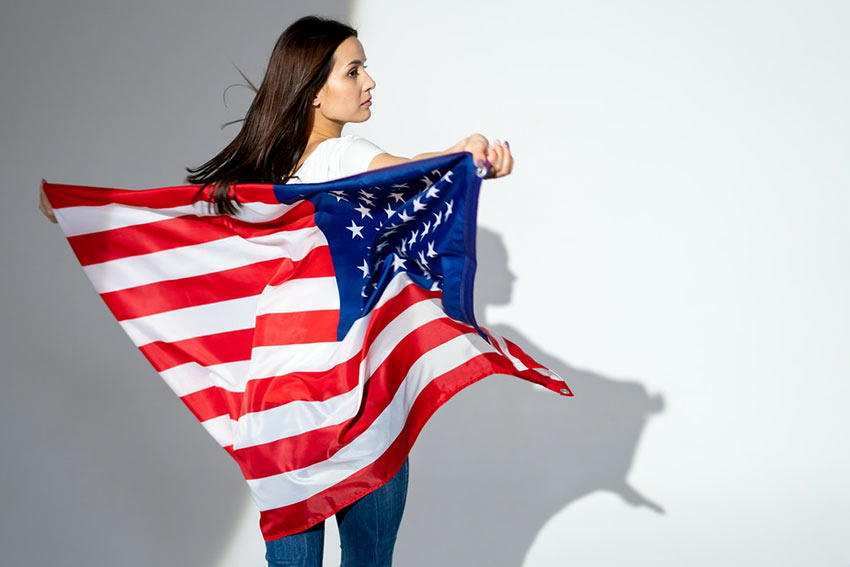
As Americans, we love our country! And that’s the way it should be, right? But we also seem to go on at length about just how great the good ol’ U-S-of-A is.
Even if the conversation starts about a dog that we saw in a public park, we can still turn it into a way to praise America for being its awesome self.
If you leave a mess in hotels while abroad you might be an American tourist

Hotels have a cleaning staff for a reason, but that’s still no excuse to leave a room looking like a war zone. And yet, it’s still one of the hallmarks of an American tourist.
If you’re gonna absolutely ruin the room, maybe leave a big tip for the cleaners. I know that tipping is an American thing too, but I’m sure they’d be willing to make an exception in this messy case.
If you travel with too much luggage while abroad you might be an American tourist.
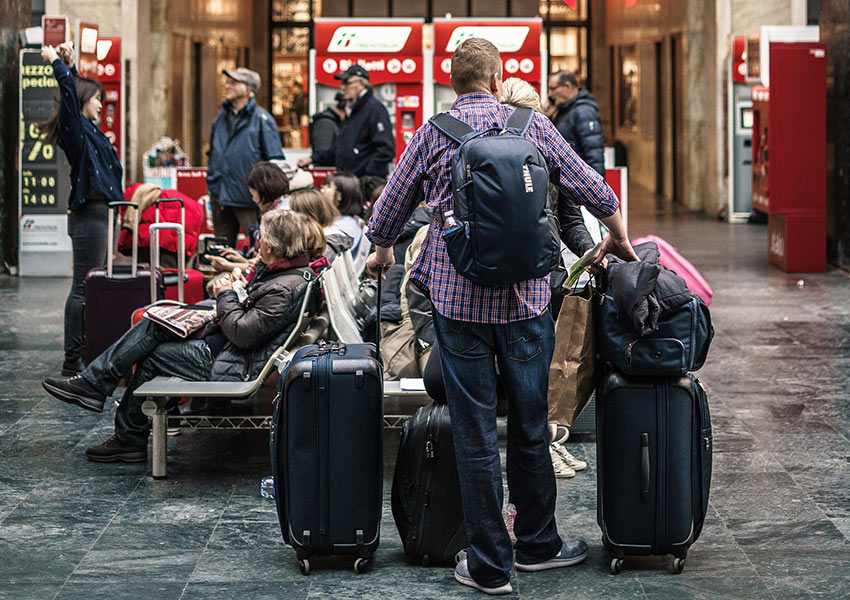
If you see someone in the airport that looks like they’ve packed for a month-long caravan, they’re probably an American.
From multiple checked bags to backpacks that make your spine hurt, we’re not great at the concept of packing lightly.
If you show a disrespect for foreign cultures when abroad you might be an American tourist.

It turns out that people aren’t crazy about it when Americans poke fun at their deeply held cultural traditions. But we’ve never let human decency get in the way of a good punch line.
If you’re gonna crack jokes, at least make sure they’re hilarious.
If you take too many selfies when abroad you might be an American tourist.
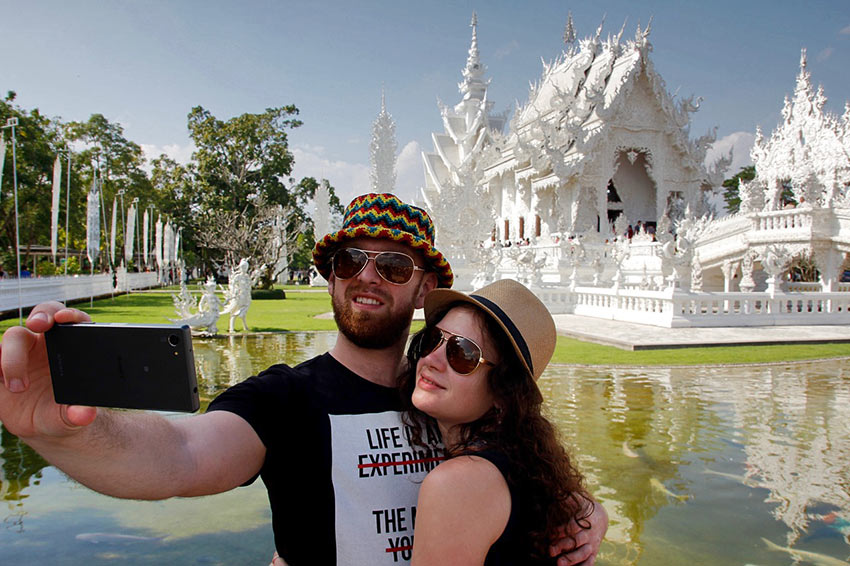
Americans and non-Americans alike use photos to commemorate special occasions, and there’s nothing wrong with that! But if you’re whipping out the selfie stick nonstop, you might be an American.
God forbid we actually put down the phone and enjoy the experience all around us.
If you flaunt wealth when abroad you might be an American tourist.

Flaunting wealth is America’s original pastime — and it doesn’t rest even when we go on vacation. At best, this is insulting to the people around you, at worst, you’re making yourself a magnet for pickpockets.
What are you trying to prove? Who are you trying to impress? You’re already rich — you won! Now keep it to yourself.
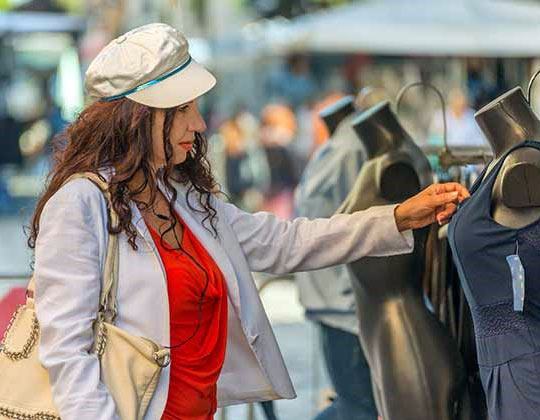 If you try to ‘haggle’ when abroad you might be an American tourist.
If you try to ‘haggle’ when abroad you might be an American tourist.
In some places and cultures, haggling is a way of life. But as Americans, we’re not big on “minor” details like where it’s appropriate and where it’s not.
Don’t be surprised to see Americans arguing about everything from the price of a meal to the price of some trinket souvenir.
If you listening to music without headphones when abroad you might be an American tourist.
Even though you might have impeccable taste in music, no one wants an unsolicited concert coming out of your iPhone. Unfortunately, not all Americans have gotten the memo about this.
We promise that no one is as interested in what you’re listening to as you.
80-Year-Old Man Killed After Confronting Bar Patron For Not Wearing Mask
When an 80-year-old man at a bar near Buffalo, New York, noticed a fellow customer not wearing a face mask, he confronted him. The customer responded by swiftly pushing him to the ground, the police said. Five days later, the man was dead.
On Monday, the customer, Donald Lewinski, 65, of West Seneca, New York, was arrested and charged with criminally negligent homicide in the death of the 80-year-old, Rocco Sapienza. The case is believed to be one of the first of its kind in New York state.
Lewinski was expected to appear in court on Tuesday in Erie County, where he planned to plead not guilty, his lawyer, Barry Covert, said. The charge carries up to four years in prison.
The encounter followed months of tension and often vitriolic confrontations across the country over masks. Disputes have escalated to violence: Retail employees have broken up fistfights between customers, and in New York City dozens of transit workers have been attacked after trying to enforce the rules.
Some encounters have also turned deadly. In Michigan, prosecutors said a security guard at a Family Dollar store was fatally shot in May after he told a customer that their daughter needed to wear a mask inside the store.
John J. Flynn, the Erie County district attorney, said he believed the confrontation between Sapienza and Lewinski — who apparently had exchanged terse words before the shove — was one of the first in New York state that had led to someone’s death. He said preliminary autopsy results showed that Sapienza died from blunt force trauma to the head.
“It’s beyond sad,” Flynn said. “These kinds of situations have continued to escalate, and this should cause everyone to pause and think twice now about how we as a society want to conduct ourselves during this pandemic.”
Sapienza and Lewinski were regulars at Pamp’s Red Zone Bar & Grill in West Seneca, and both men had been at the bar for a few hours on Sept. 26 when they clashed over Lewinski’s failure to wear a mask, according to Capt. James Unger of the West Seneca Police Department.
In New York state, customers at bars and restaurants are required to wear face coverings when they are not seated.
Flynn said surveillance video showed the two men sitting alone at different sections of the bar. Lewinski got up a few times, including to bring a round of drinks outside the bar area. Each time, he was not wearing a mask.
The bar owner went up to Lewinski and spoke with him for about a minute before Sapienza put his mask on and walked up to them, Flynn said the video showed.
“Out of the blue,” Lewinski “two-hand shoves” Sapienza, Flynn said. As he fell, Sapienza’s left arm knocked over a nearby bar stool and his head hit the floor. He appeared to lose consciousness.
At Erie County Medical Center, he underwent brain surgery, but remained unresponsive until he died on Thursday, the police said.
Minutes after the incident, Lewinski paid his bill and left.
Unger said that Sapienza was “very well-liked” among customers at the bar and often took on a role of “protecting the staff.” Lewinski had made “lewd comments” to other patrons and employees, the police said, which might have fueled the dispute.
“They had exchanged words prior to the confrontation,” Unger said, “and then the incident with the masks was the culmination of all those little verbal spats.”
It was unclear whether the two men knew each other before that day, he said.
c.2020 The New York Times Company
#LETUSALLUNITE: A Global Campaign on the Occasion of the 80th Anniversary of “The Great Dictator”
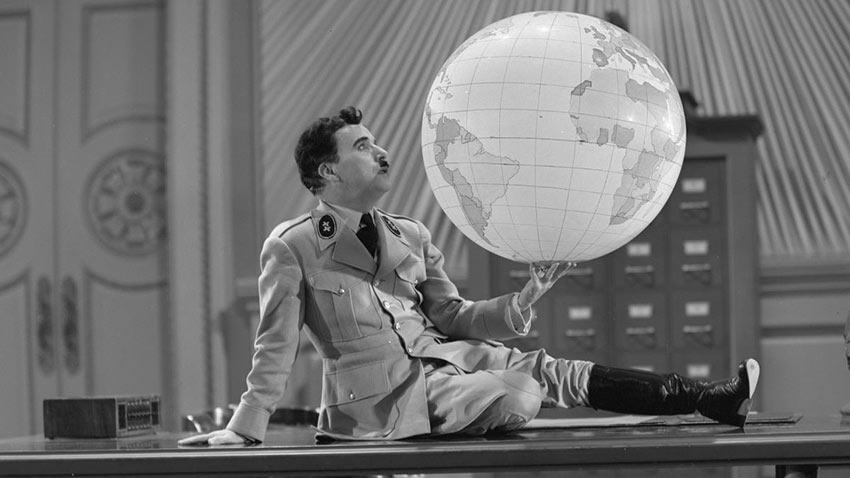
To mark the 80th anniversary of “The Great Dictator,” one of Charlie Chaplin’s most iconic films, Chaplin’s World announced today that it is launching a year-long campaign with international partners. #LETUSALLUNITE, a human fresco on a global scale, will unite the citizens of the world around the universal values of the film.
THE GREAT DICTATOR
A film with universal appeal and timeless values
Chaplin was one of the few filmmakers who in the 1930s questioned the legitimacy of Adolf Hitler and his party, and the threat they posed to the world. Working on a satire of Nazism and the persecution of Jews on the eve of World War II was very brave indeed: Chaplin received death threats, faced financial and political pressure, and financed the film alone, against all odds. Contrary to popular belief, Chaplin was not Jewish; he simply felt compelled, as always, to defend the oppressed.
Premiering in New York on 15 October 1940, “The Great Dictator” and the values expressed in the film’s final speech still resonate and inspire today, across borders and generations; world-famous bands such as U2 and Coldplay have passed on its universal message by playing the speech at the opening of their concerts.
Chaplin’s visionary satire was shaped by, and has shaped, History.
#LETUSALLUNITE
The citizens of the world write the final speech of “The Great Dictator”
In the light of current socio-economic and geopolitical challenges the film’s speech remains highly relevant.
Chaplin’s World, the Chaplin office in Paris, the Charlie Chaplin Museum Foundation, the Non-Violence Project Foundation, and Amnesty International Switzerland (as education partner) are to bring it back into the spotlight with this creative and unifying project.
Launching on 15 October 2020, the #LETUSALLUNITE campaign invites you to take part in spelling out the words of the speech and, in doing so, to create a giant human fresco. A very simple online tutorial and website will explain how to participate: it entails, with a group of family, friends or colleagues, dressing up as the Tramp, taking position to form a letter of the alphabet, and photographing yourselves.
Anyone can get involved and pay homage to the film in keeping with their own culture and environment.
Forming a letter from the speech is a way to endorse its message and become part of a group of people who believe in, and uphold, Chaplin’s humanist values. As each person brings a ray of hope, together we form a message of peace, tolerance and unity.
After submission to letusallunite.world, the letters will be put together by the artist NOTsoNOISY Guillaume Reymond (who created this project exclusively for Chaplin’s World) to write the final speech of “The Great Dictator.” On 20 June 2021 this creation will be unveiled on Instagram and printed on an immense banner to be displayed on the outer wall of Chaplin’s World.
Pictures of “The Great Dictator” to downloadRewatch and Listen:
What Americans Abroad Should Not Expect
Pancakes
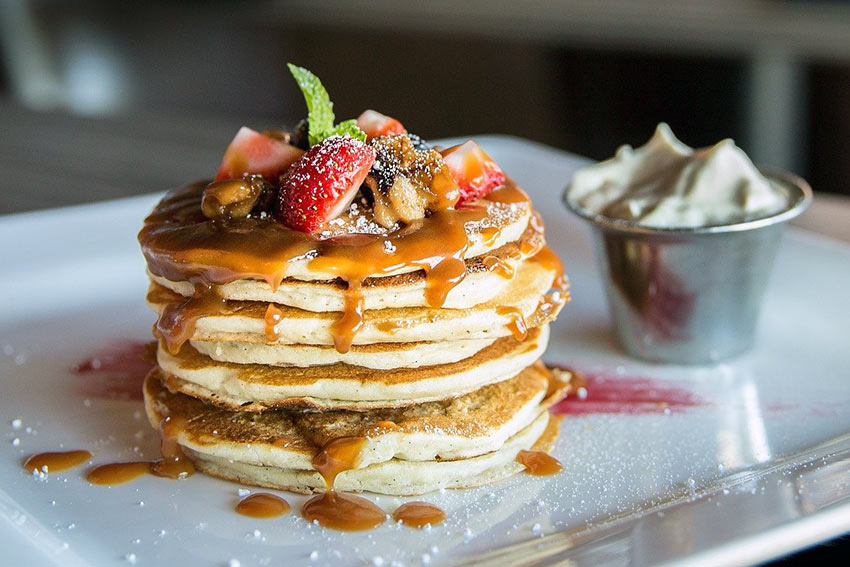
The fluffy flour-based pancakes that American’s have come to love at breakfast time (or for brinner) just aren’t found abroad. French crêpes are too thin. The Japanese version (okonomiyaki) is too thick and most often topped with savory things like meat, seafood, and cabbage. Australian-style pancakes are too eggy and have sugar in the dough.
 Maple Syrup
Maple Syrup
If you want to leave the country and still find maple syrup, head north to Canada. Otherwise, you’ll be out of luck. North America is the only hospitable place for (growing and) tapping true 100% maple syrup. Other countries don’t even use it as a topping for their country’s version of pancakes anyway.
Chewing Gum
In America, people walk around chewing gum. A lot. All the time. For hours at a time. In much of Europe, this is considered rude, especially if you try talking to someone with gum in your mouth. They might chew it for a few minutes after a meal, but they then spit it out. In Singapore, chewing gum is even outright banned!

From sodas to cereals to snack cakes, Americans are faced with an overwhelming array of choices at the supermarket. Entire books have been written about what it’s doing to us psychologically as a country.

The Condiments You Know and Love
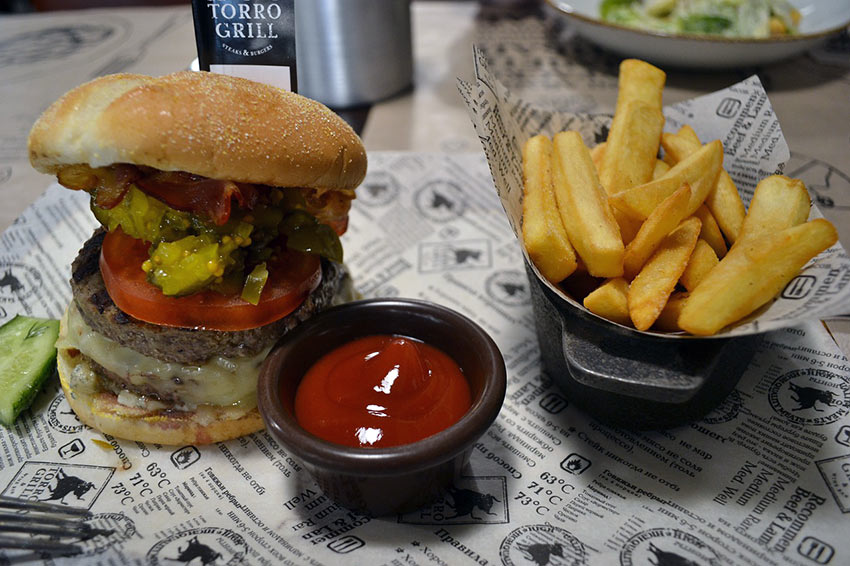
We have some really bad news for non-adventurous eaters who travel abroad. The condiments you know and love are a little off. If you love your American ketchup and actually find a place with good french fries, you’ll be disappointed to learn that non-American ketchup is more akin to a simple tomato sauce. It’s less tangy and has more sugar. So be prepared for the sweetness before dousing things! Likewise, mayonnaise is less sour and lighter in other countries. It’s even a preferred dipping sauce for fries in the UK.
Fried Everything
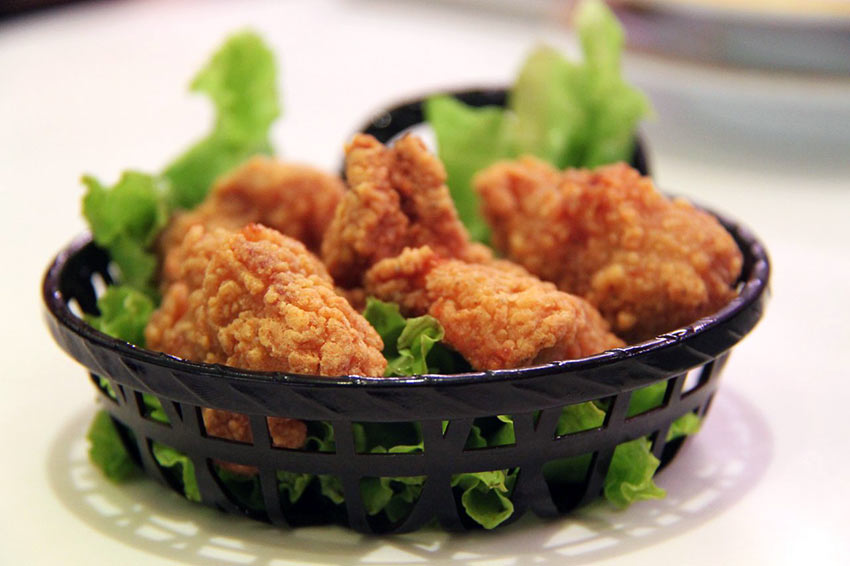
We have the culinary ingenuity of an anxious toddler, if an anxious toddler could work a deep-fryer. We’re a country that puts burgers on donuts. We’ve built an entire world out of fried-everything state fair food kiosks. We own this!
Food as Entertainment
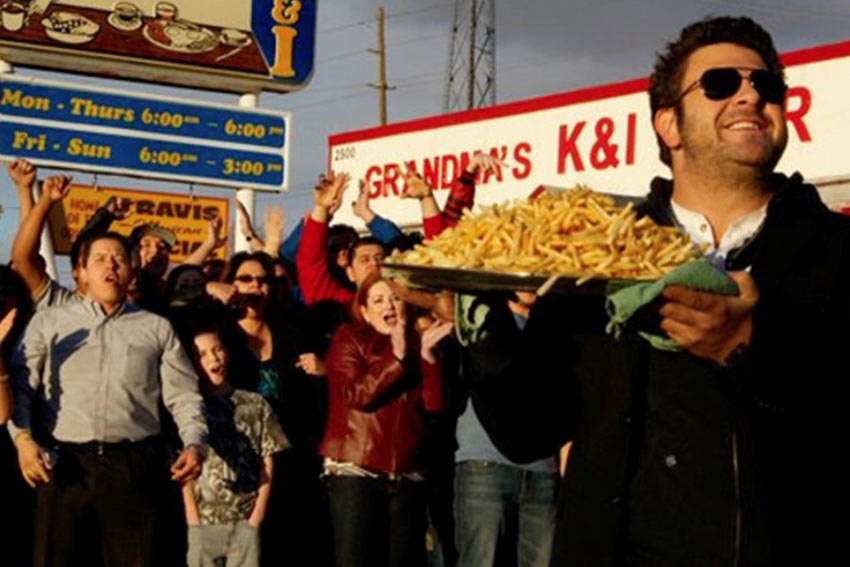
We have a long tradition of eating competitions; the Nathan’s Famous Hot Dog Eating Contest just celebrated its 100th anniversary. There’s even a hit TV show called “Man v. Food.” Try pulling this off in France and see what happens!
Iced Tea
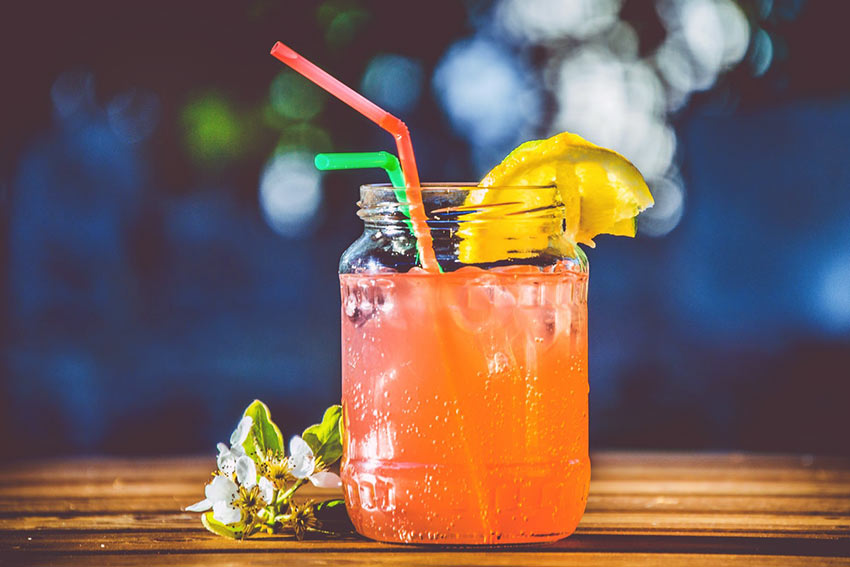
Iced tea is an entire cultural phenomenon unto itself. Some fanatical places will even serve tea with ice cubes made out of tea. The purpose is to ensure that your tea doesn’t get watered down as the ice melts.
 Tex-Mex
Tex-Mex
If you are from the U.S. and you think you know what Mexican food is, think again. What you know and love is actually Tex-Mex. Visit Mexico and you may be surprised to see that some of your favorite dishes can’t be found. And if you head to Europe, good luck finding quality Tex-Mex cuisine. They can be counted on a single hand.
Fortune Cookies
There’s something similar to the American fortune cookie in Japan’s history, but the fortune cookie as we know it today is pure Americana. There are conflicting reports on where it came from, but all signs point to San Francisco.

Being “Fashionably Late”
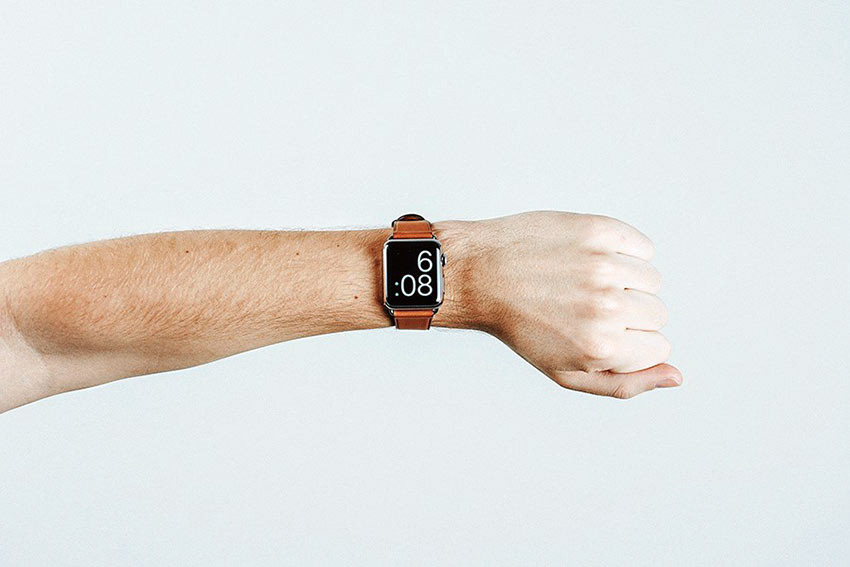
If someone invites you over to a party in America, it’s not uncommon for the bulk of the attendees to start showing up around 15 to 30 min after the start time. It’s not that they’re late; they’re just giving the host right up until the start of the party to get everything ready. Arriving a little after the “official” start time means that the party will already be in the swing of things, so there’s no awkward waiting around for people to show up. In other countries, however, the host would be wondering why you didn’t show them the courtesy of being punctual.
Eating Out for Dinner
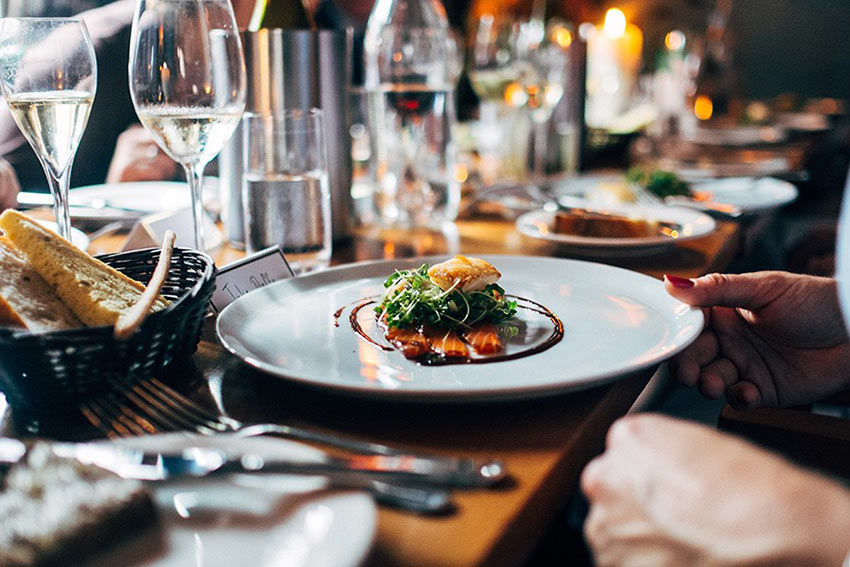
Eating out at restaurants has almost become an unwritten rule on Fridays and Saturdays in the states. In many other countries, they stay in and use the time to make large meals for family and friends. It’s essentially the same concept (hanging out with the ones you love over a shared meal), just a different location.
 Cream Cheese
Cream Cheese
The closest thing is mascarpone cheese in Italy. It has more fat than cream cheese, however. American cream cheese is also created using lactic acid bacteria, giving it a tangier and more acidic taste than the creamy Italian counterpart. Those breakfasts of a plain bagel with a smear of regular American cream cheese are over once you move abroad.
Movie Theater Popcorn

“Movie theater” popcorn that is drenched in oily butter is a uniquely American concept. So are hot dogs and nachos as movie food. Are you even one of those people?
Long Highways

Russia, Canada, China, and Australia have wide open spaces. But when you look at other countries, their highways are not nearly as long as ours. Plus, they usually only have one or two lanes on each side. In America, we apparently need three or four.
White Bread

When other countries talk about our bread, it basically sounds like we sit around eating cake on our sandwiches. Honestly, once you’ve tried bread in other places, you may be inclined to agree.
Walmart

Walmart has expanded overseas, but there’s nothing like America’s sprawling Supercenters. In fact, the American company conceded failure and pulled out of the German and South Korean markets altogether. There is rarely something as similar as a Walmart Supercenter that has groceries, home goods, auto parts, and hunting supplies all under one roof.




